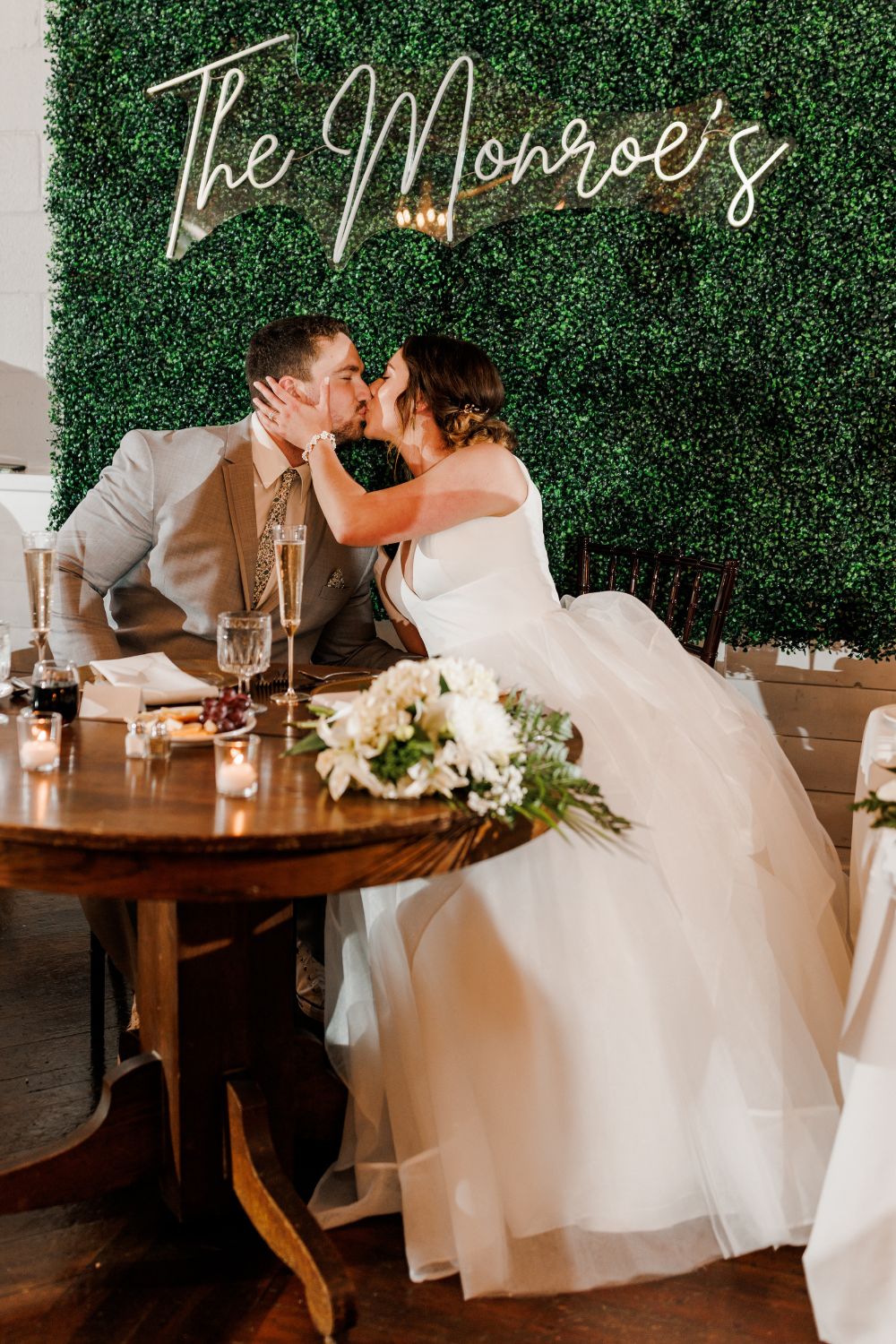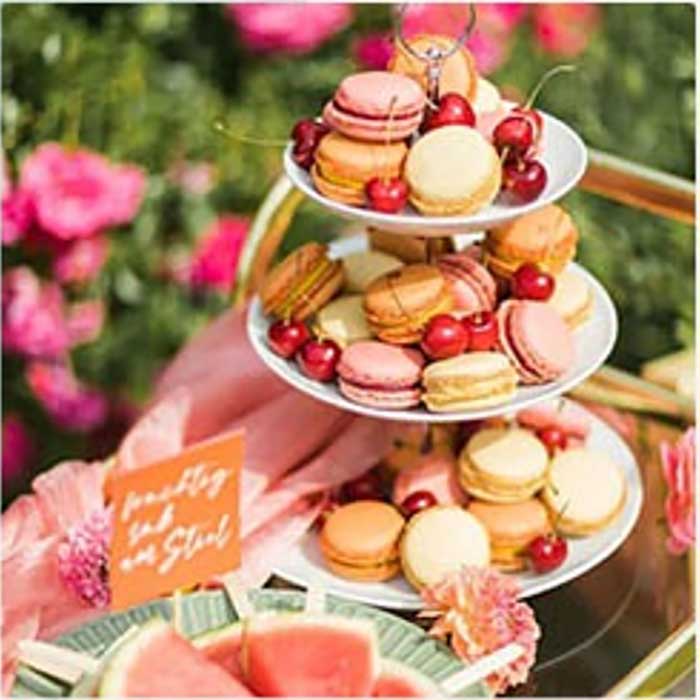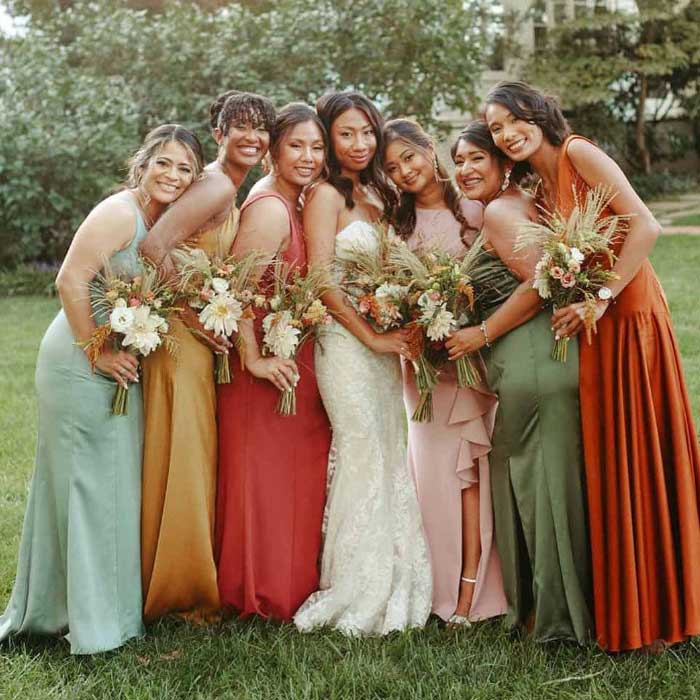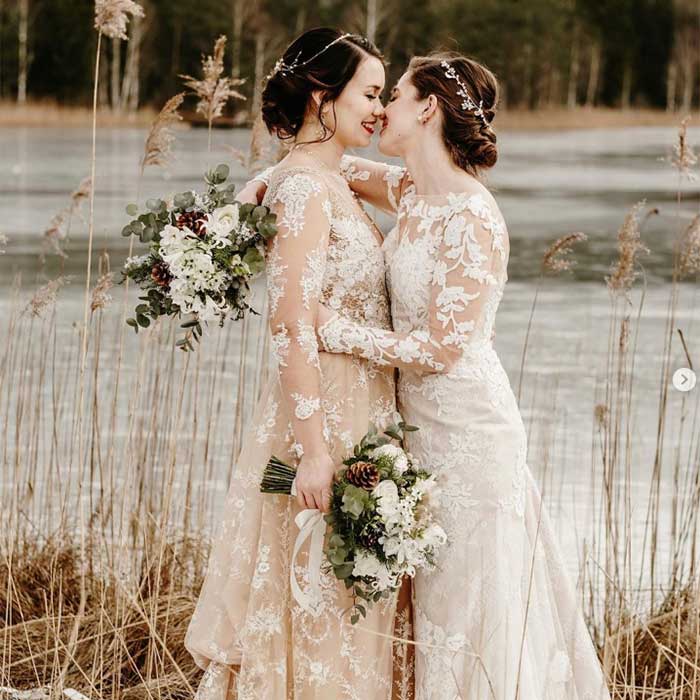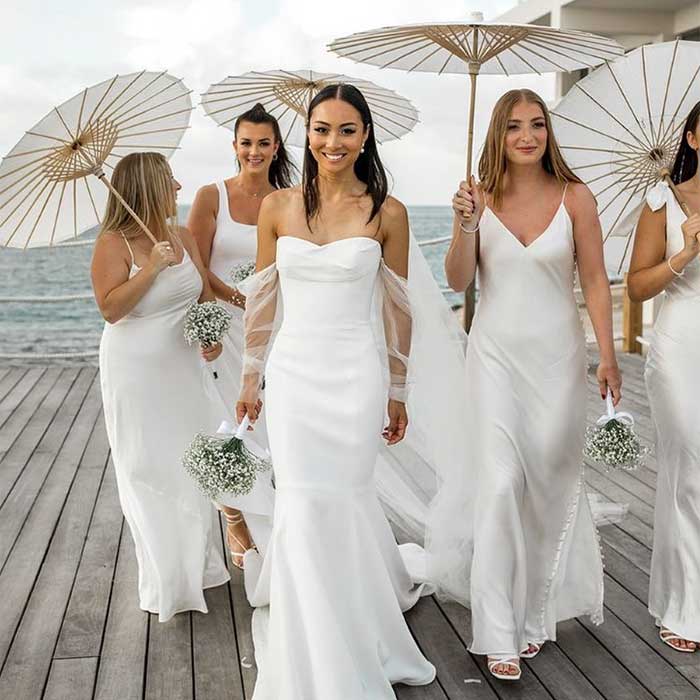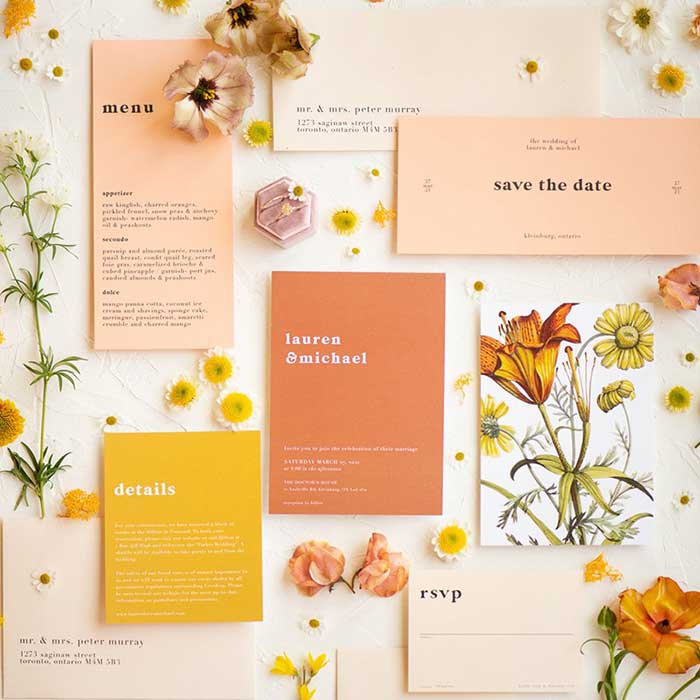Sustainable and Eco-Friendly Wedding Practices in Michigan
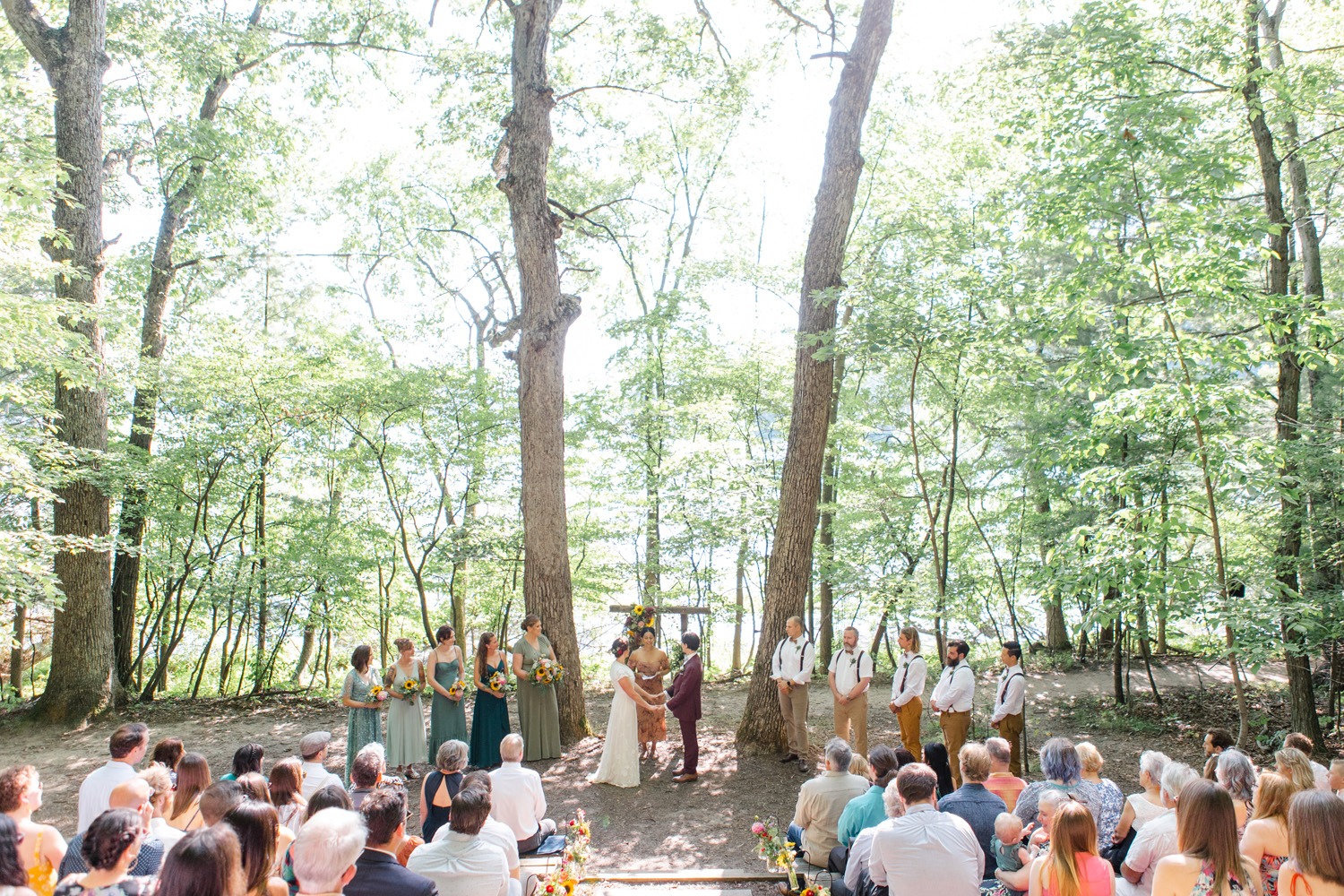
Table of Contents
Introduction
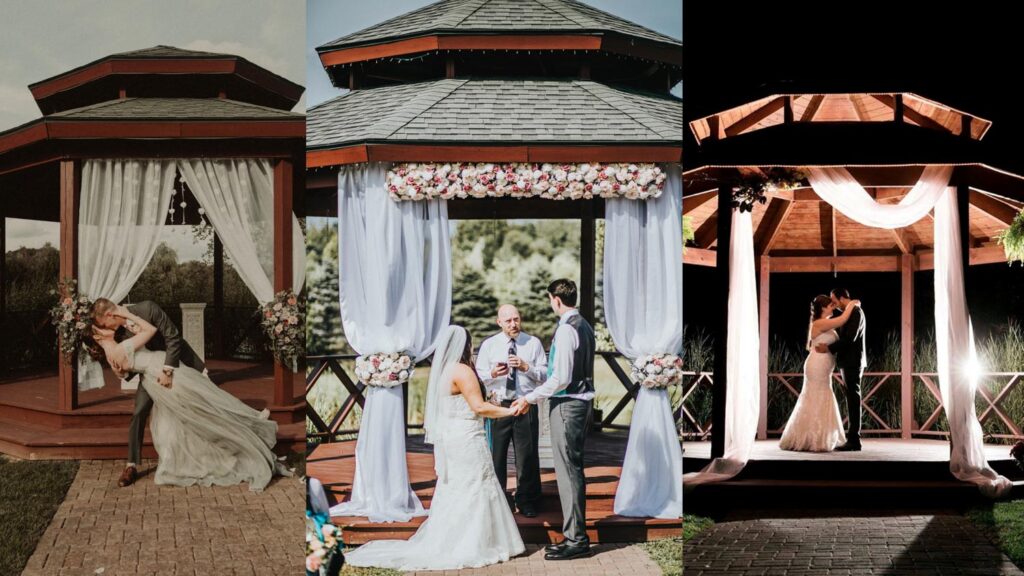
Photo sourced from The Silo
As couples increasingly prioritize sustainability and environmental consciousness, the demand for eco-friendly wedding practices has surged. In Michigan, a state of inherent natural beauty, embracing sustainable wedding practices not only reduces environmental impact, prioritizes the perpetuation and conservation of the state’s natural resources, and satisfies a communal desire to leave and inspire a positive impression within our communities, but also contributes to a memorable and meaningful celebration.
Vendors are the backbone of the wedding business community and therefore have the unique position to embrace and prioritize the core of the sustainability movement within the industry. At Nearlywed, we are proud to be a stronghold of passionate and caring professionals dedicated to doing our part for our community and the environment we inhabit; within that, we want to intentionally take time to explore eco-friendly and sustainable wedding practices for vendors and couples alike.
Sustainable Venues
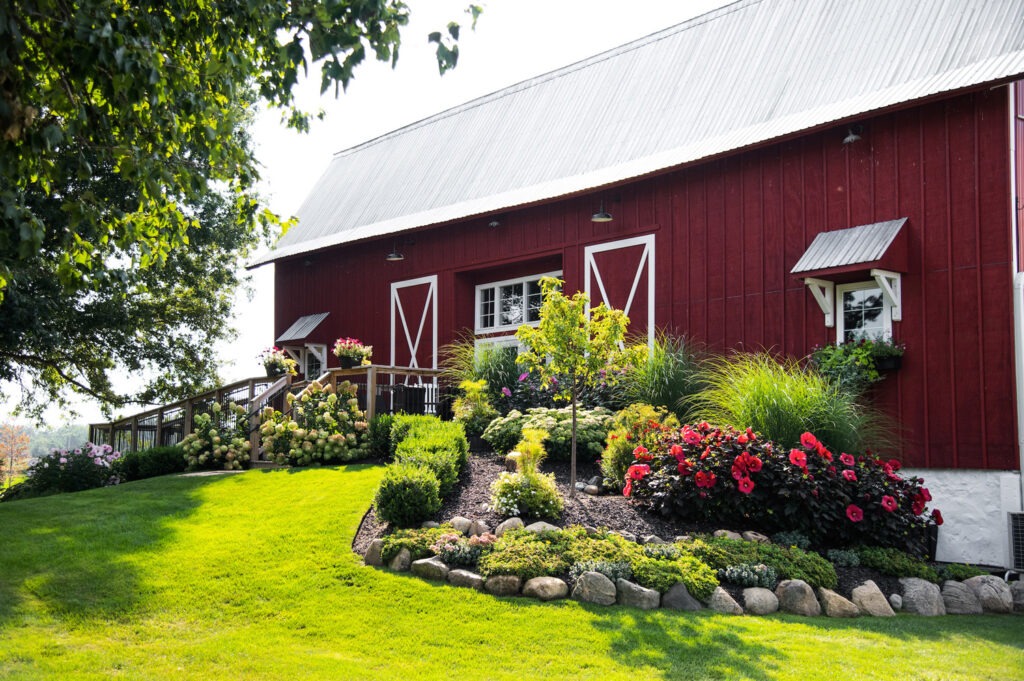
Photo sourced from Barn 1888
Sustainable wedding venues set the foundation for eco-friendly celebrations. In Michigan, couples have a variety of unique options, from rustic barns nestled in picturesque countryside settings to charming vineyards overlooking the Great Lakes. As a venue, you can become “green certified” with programs such as LEED (Leadership in Energy and Environmental Design).
Transforming a wedding venue into a green-certified space involves a comprehensive approach that encompasses energy efficiency, waste reduction, and sustainable practices. To become green certified, a venue in Michigan can start by conducting an energy audit to identify areas for improvement. Once identified, venues may implement energy-saving measures such as installing LED lighting, programmable thermostats, and energy-efficient appliances. Additionally, the venue can establish recycling and composting programs to minimize waste and divert materials from landfills.
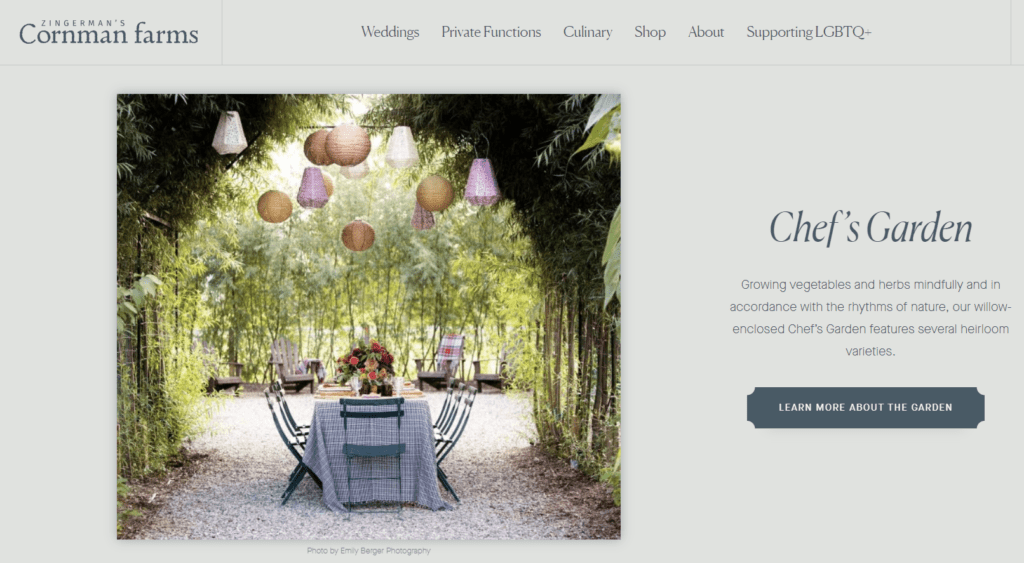
Photo sourced from Zingerman’s Cornman Farms
Partnering with local vendors who prioritize sustainability and source products from eco-friendly suppliers can further enhance the venue’s green credentials. Investing in renewable energy sources such as solar panels or wind turbines demonstrates a commitment to reducing carbon emissions and promoting environmental stewardship.
By implementing these measures and obtaining certification from recognized organizations such as the U.S. Green Building Council’s LEED program or the Green Venue Certification, a wedding venue in Michigan can showcase its dedication to sustainability and attract couples seeking eco-friendly options for their special day.
Another eco-friendly opportunity for venues to invest in is creating outdoor rental spaces that minimize the need for artificial lighting and heating. Luckily, Michigan’s natural splendor is the perfect scenic backdrop for this idea, making this a multi-faceted win for venue vendors.
Zero- and Low-Waste Catering and Menus
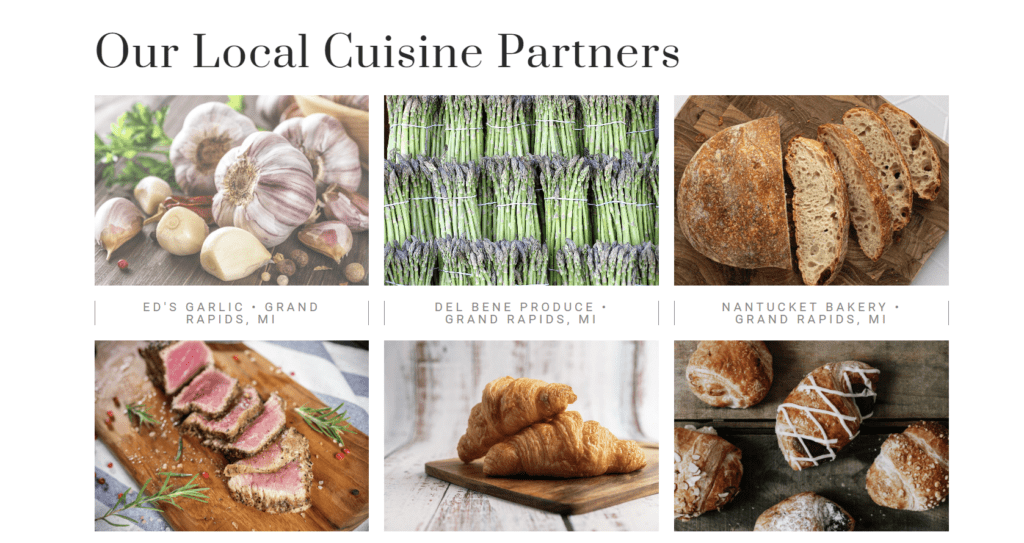
Photo sourced from KJ Catering
Food and beverage choices play a significant role in sustainable weddings. Eco-conscious caterers and vendors prioritize local, organic, and seasonal ingredients sourced from Michigan’s farms and producers. The closer the source, the lower the carbon footprint. Farm-to-table and field-to-fork is more than just a trend; it is a necessary aspect of sustainable food sourcing while simultaneously supporting Michigan’s local economy, farmers, growers, and ranchers.
As a caterer, offer options for plated meals or family-style services to minimize food waste, and work with your clients to educate them on the pertinence of planning portion sizes carefully.
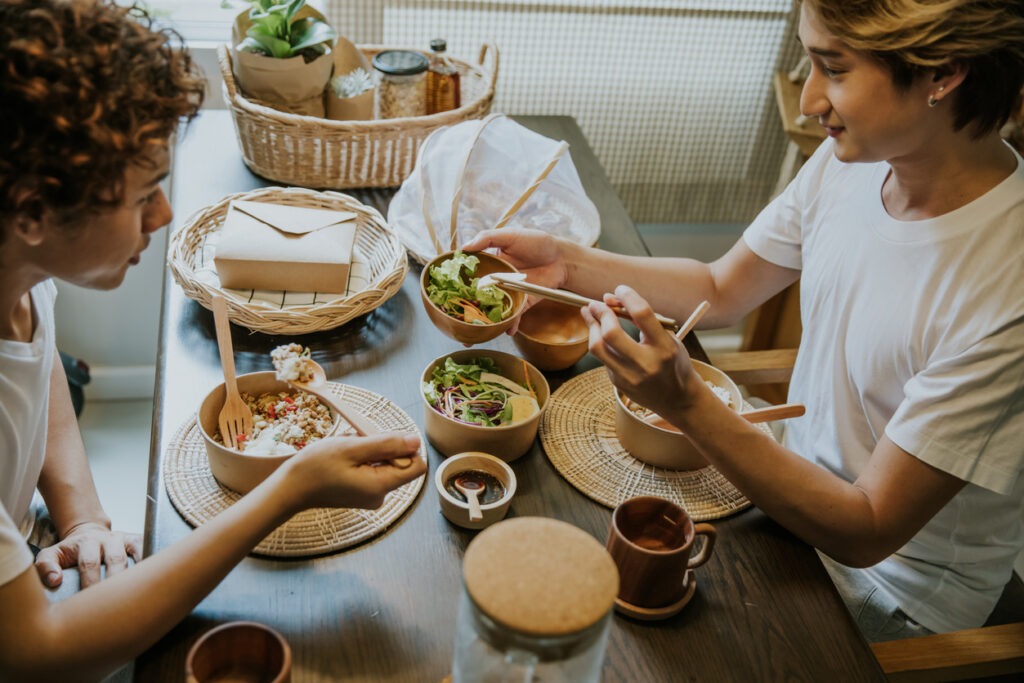
Zero-waste practices require more careful planning and involvement but epitomize sustainability. Caterers can delve into zero-waste practices by using compostable or biodegradable tableware and cutlery, and even go as far as creating stunning table displays using sustainable materials such as bamboo, palm leaf, or recycled paper.
Vegetarian, vegan or even game-meat (where applicable) menu options reduce the environmental impact of meat production and cater to guests with diverse dietary preferences. By adopting zero-waste and low-impact catering practices, vendors can create a delicious and sustainable dining experience that reflects Michigan’s commitment to environmental stewardship.
Ethical and Eco-Friendly Attire
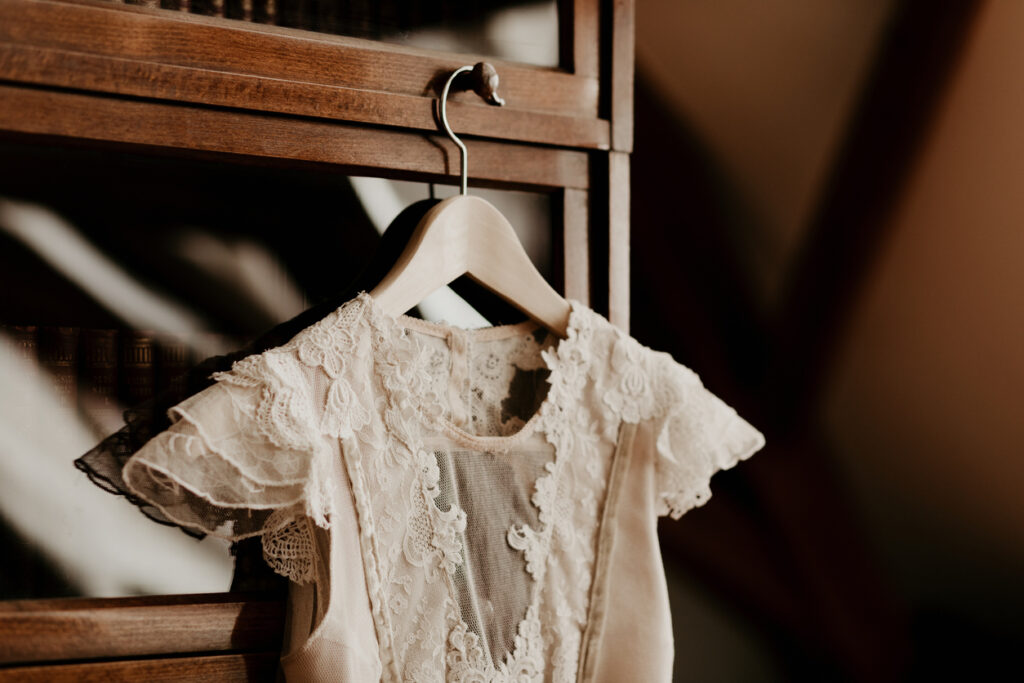
When it comes to wedding attire, ethical and eco-friendly options are often overlooked but can make a significant difference. Fast fashion is a detriment to society; low-quality garments that are trendy for a moment often end up in landfills and take decades to decompose.
Attire vendors can offer options for customers that are made from sustainable fabrics such as organic cotton, hemp, bamboo, or Tencel, which have lower environmental impacts and degrade faster compared to traditional materials like polyester or silk.
Vendors may also offer rental options or create buyback programs to offer secondhand wedding and vintage attire selections for clients to choose from. Another great option is an online platform specializing in second-hand wedding dresses and suits, which may serve to diversify your client base and provide the perfect opportunity for sustainable and eco-friendly attire choices without adding complexities to storefront inventory; just be sure to consider the carbon cost of shipping and packaging materials.
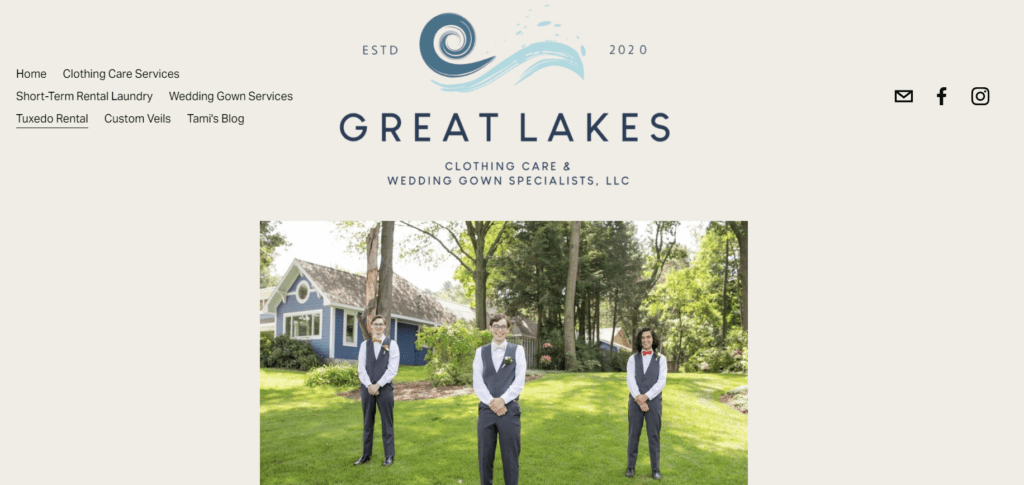
Photo sourced from Great Lakes Wedding Gown Specialists
Secondhand and vintage choices are incredibly marketable; not only do these options reduce the demand for new clothing production, but they also add a unique touch to wedding ensembles while supporting sustainable fashion practices.
For accessories such as jewelry and shoes, artisans and designers who prioritize ethical sourcing and sustainable production methods are critical. Attire vendors should seek out partnerships with such vendors and stock their stores accordingly. Vendors may also prioritize eco-friendly packaging and shipping methods that avoid single-use plastics, use biodegradable labels and packing materials, and mail multiple orders in as few shipments as possible. Thoughtful vendors attract thoughtful couples; show couples that you care about the environment with creativity in sourcing eco-friendly attire options and offer avenues for couples to prioritize sustainability that they may not have even previously considered. Your brand will stand out for its commitment to environmental stewardship.
Local and Seasonal Florals

Floral arrangements are traditional pieces of wedding décor that enliven a space, but they also have a significant environmental impact. Floral arrangements require significant water, heat and light sources to cultivate and are subsequently used for the celebration and then typically trashed. To offset their environmental impact, vendors can prioritize partnerships with Michigan’s local flower farms; many of these local growers are well-versed in sustainable growing practices, using seasonal floral options, and offering local varietals (i.e., native foliage and florals) to cut carbon emissions and celebrate Michigan’s natural, native beauty.
As a vendor, offer alternatives to traditional floral arrangements, such as potted plants, succulents, or dried flowers, which can be repurposed or composted after the wedding. Work with your clients to educate them on minimizing floral waste and explore creative ways to reuse or donate flowers after the celebration.
Eco-Friendly Décor Rentals
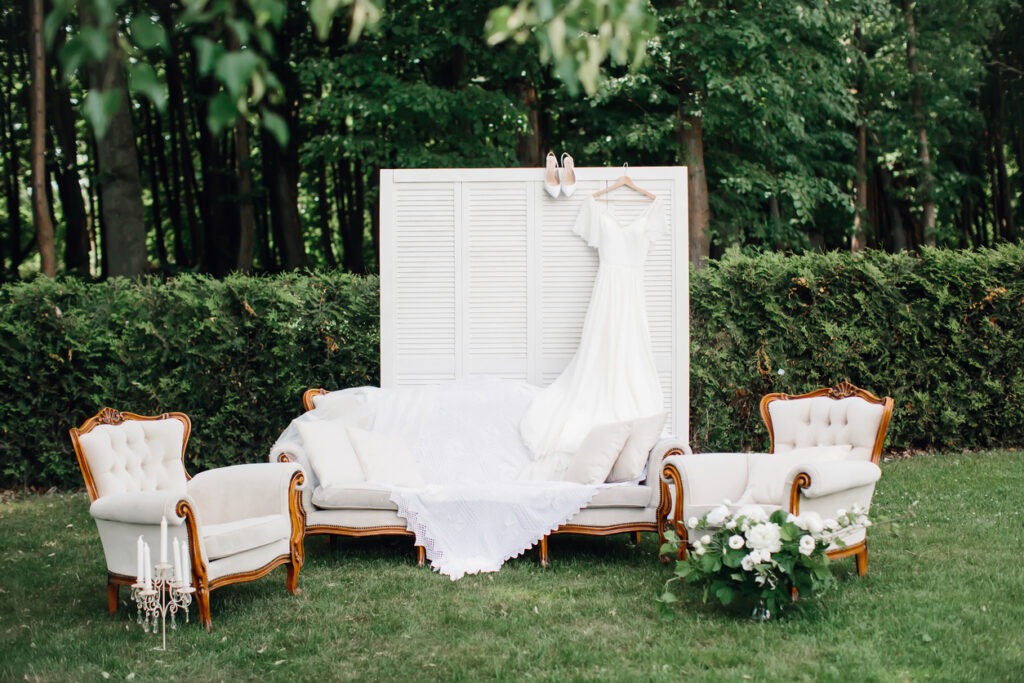
Eco-friendly décor rentals are a sustainable approach to enhancing the ambiance of your wedding while minimizing environmental impact. Rental companies looking to prioritize eco-conscious décor options should offer items such as reclaimed wood furniture, vintage tableware, upcycled décor items, and secondhand sourced décor. Educating couples on the merits of renting rather than purchasing décor items for their celebration reduces the demand for new materials and contributes to a circular economy. Become a resource for your clients on sustainable décor and engage with them regarding the intersection of eco-conscious practices and crafting the celebration of their dreams.
Recycled Invites and Stationery
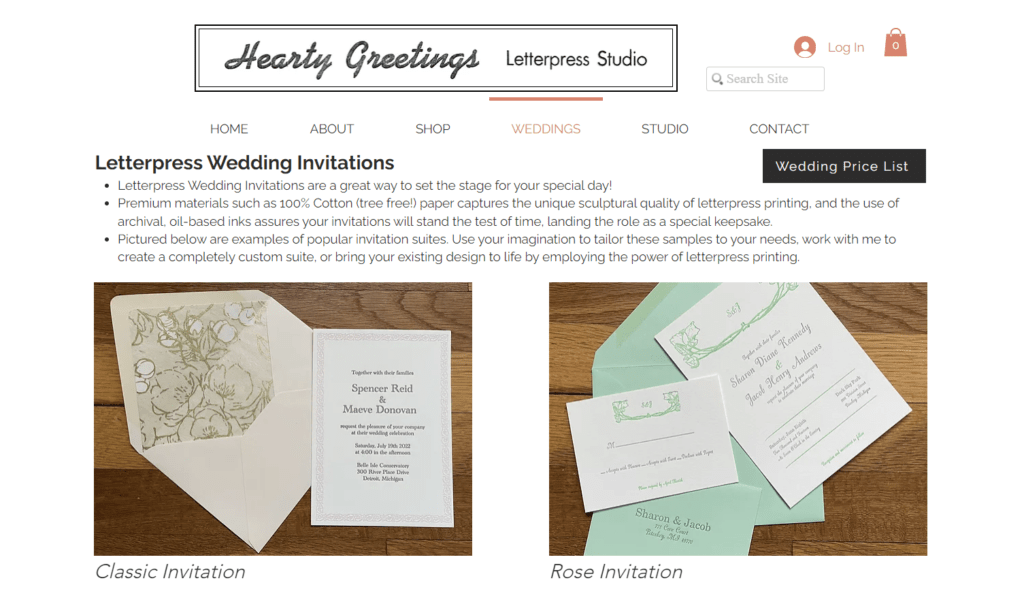
Photo sourced from Hearty Greetings
Invitations and stationery are essential components of wedding planning, but they often result in paper waste. Stationery vendors can offer options for recycled or eco-friendly paper when designing wedding invitations and stationery suites. Look for paper products made from post-consumer recycled content or sustainably sourced materials certified by organizations such as the Forest Stewardship Council (FSC).
Consider offering digital or electronic invitations as an eco-friendly alternative to traditional paper invites, which not only reduce paper waste but also minimize carbon emissions associated with printing and transportation while simultaneously diversifying your client base and overall reach.
Waste Reduction
Waste reduction is a key principle of sustainable weddings in Michigan. Implement strategies to minimize waste throughout the wedding planning process, from food and beverage services to event setup and breakdown. All eco-friendly and sustainable vendors should prioritize waste reduction and recycling; caterers may compost food scraps, florists may donate leftover flowers to local charities or repurpose them into dried arrangements, and attire vendors may offer buyback programs.
Sustainably Focused Wedding Planners
Sustainably focused wedding planners are an invaluable investment for couples seeking to incorporate eco-friendly practices into their wedding celebration. Sustainable wedding planners are an authority on all things eco-conscious in the Michigan wedding industry, including everything from vendor options to details like event size (smaller events are more sustainable). Wedding planners in Michigan who specialize in sustainable and eco-friendly weddings are committed to minimizing waste, supporting local vendors, and promoting ethical practices. A sustainably focused wedding planner can offer guidance, resources, and creative solutions for designing a wedding that aligns with clients’ sustainability values and visions. From eco-conscious vendor recommendations to waste reduction strategies and green wedding tips, a sustainably focused wedding planner is a one-stop shop to assist couples in navigating the wedding planning process with environmental mindfulness and intentionality.
Eco-Friendly Wedding Conclusion
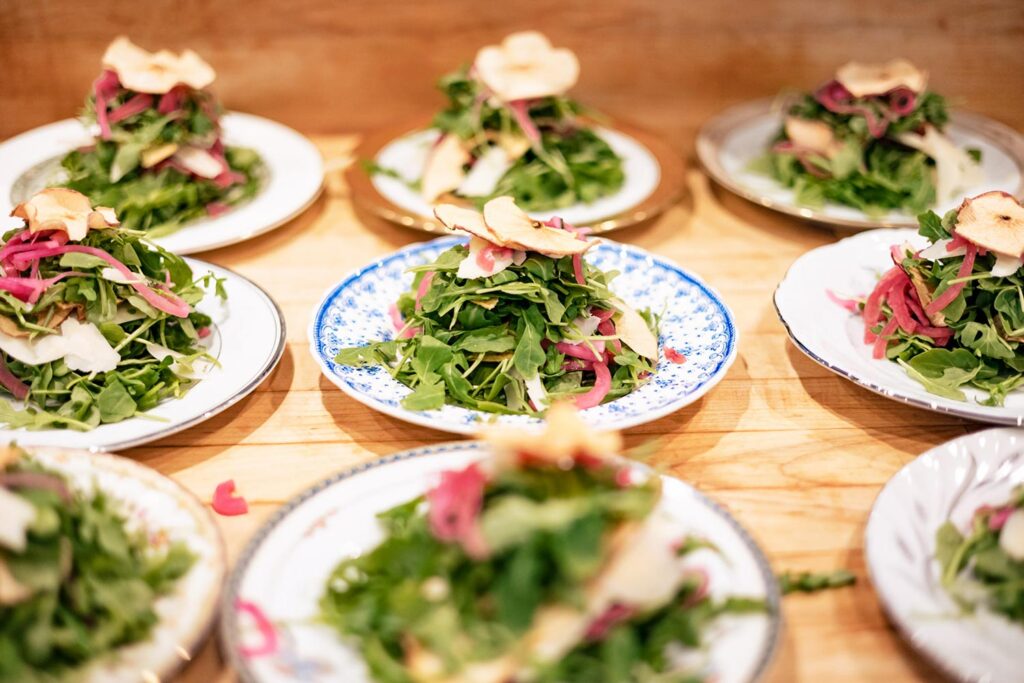
Photo sourced from Zingerman’s Cornman Farms
Sustainable and eco-friendly wedding practices offer couples in Michigan an opportunity to celebrate their love while minimizing their environmental footprint. Vendors have an opportunity to tap into this cause and support couples in their desire to minimize environmental impact. From green-certified venues and zero-waste or farm-to-table catering options to ethical or secondhand attire selections and local, seasonal, and native florals, there are countless ways to incorporate sustainability into every aspect of a wedding celebration.
By embracing eco-conscious choices, supporting local businesses and artisans, and making a commitment to waste reduction, vendors can help conscious couples create memorable and meaningful wedding experiences that reflect their values and commitment to environmental stewardship.
you might also like
Check Out The Latest on Instagram
Check Out The Latest on Instagram
Follow us on Facebook and Instagram for more tips, resources, and inspiration!


